A8 Courtesy Check
Our techs run a total visual inspection that lets you know what needs fixing now and what can wait.
- Comprehensive Visual Assessment
- Transparent Reporting
- No Obligation Service
- Expert Technicians
- Customized Service Plans
- Enhanced Safety
- Save on Future Repairs
- Convenient Scheduling
- Customer Education
Best Multi Brand Car Repair Service
















Introducing Our Comprehensive Closer Look Vehicle Check
Safe driving is all about staying aware of what’s up ahead. With our Closer Look Vehicle Check, our Auto 8 techs can perform a comprehensive visual inspection of your car’s major components and systems, every time you bring it in. We’ll peek inside, outside, under the hood and under the vehicle, and let you know what problems your car may have, what you should plan for. No extra cost. No pressure to fix everything right here and now. We’ll present the results to you to help keep you driving confidently on the road ahead. Check out our inspection list below to get a closer look at what our Auto 8 techs will check for.
Observations

Dash Indicator Lights
All dash indicator lights turn on and then off when your car starts as a quick system check. This on-off behavior also shows your service technician which bulbs may be burned out.

Road Test
When you’re used to driving your vehicle every day, it’s easy to get comfortable with things that might be affecting your safety. We may take your car your car for a quick spin to check noise, drivability, handling, and more.

Wipers
Rain with working wipers? No problem. Rain with worn wipers? Big prob…lookout! Whether you need a quick repair, or newer blades for the rainy season, we’ll make sure your wiper blades and system are up to task.
Electrical
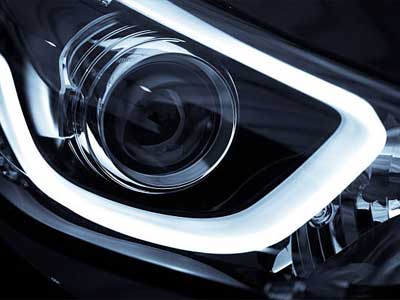
Exterior Lights
We all know how dangerous driving can be with a light out. But oftentimes you don’t know a bulb is out until someone tells you. We’ll check all your exterior lights to keep you and your fellow drivers safe.
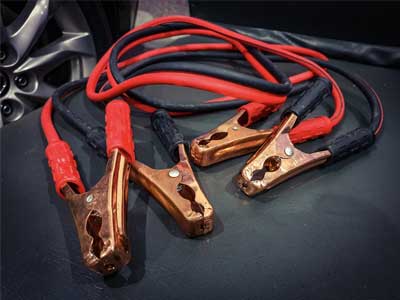
Battery/Cables
Corroded battery terminals or cables rob your engine of starting power. Missing battery hold-downs or insulation may cause premature battery failure. We’ll check it all out, so you don’t have to worry about getting stranded.
Belts Hoses and Filters
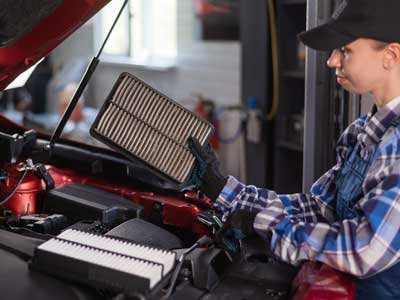
Engine Air Filter
Dirty air filters contribute to poor engine performance and lower fuel mileage. Missing or damaged filters allow dirt directly into the engine and may cause premature engine wear.
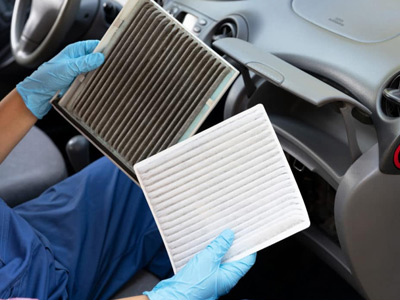
Cabin Air Filter
Notice any smells in your car? Does your hay fever act up? Our Auto 8 technicians will make sure your filters aren’t letting any unwanted particles into your vehicle.
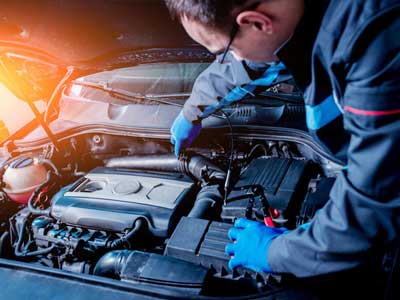
Hoses
Road conditions and undercarriage corrosion can cause cracks or wear in the steel lines and rubber hoses that carry fuel and brake fluid underneath your vehicle, causing potential safety hazards.
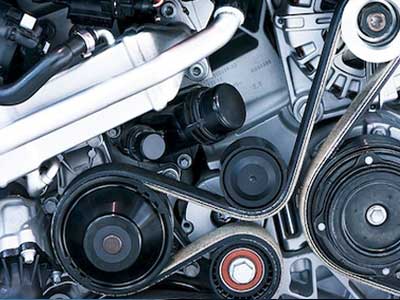
Belts (except Timing Belts)
Worn or frayed belts should always be replaced. Most modern vehicles use just one belt to operate the water pump, alternator, power steering pump, and A/C. Broken belts can cause overheating, electrical, and steering system failure, leading to roadside breakdowns.
Fluids
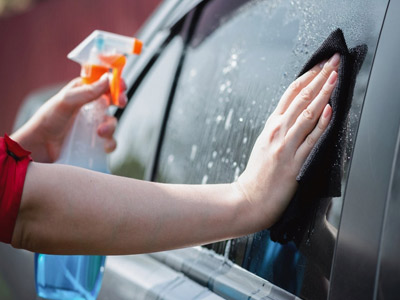
Window Washer Fluid
Topped-off window washer fluid reservoirs are necessary for clear visibility in all types of driving conditions. For clearing bugs to road salt, washer fluid is a must-have.
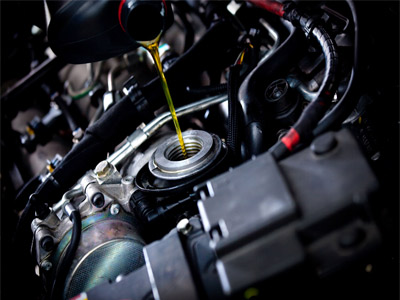
Engine Oil
Regular oil changes are the best protection against internal engine damage. Clean, quality oil also helps reduce emissions and improve fuel mileage.
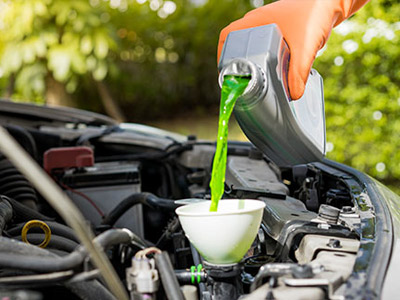
Coolant
Replacing engine coolant renews corrosion protection for the radiator, water pump, and coolant system gaskets while maintaining both freeze and boil-over protection.
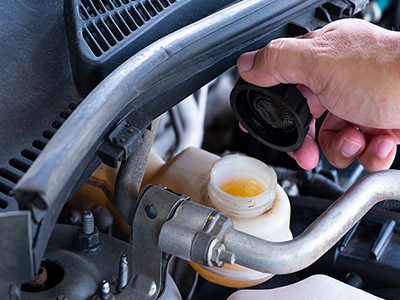
Brake Fluid
Replacing the brake fluid helps maintain correct pedal pressure and prevent corrosion deposits from forming on Anti-lock Brake System pumps and other brake hydraulic parts.
Mechanical Systems
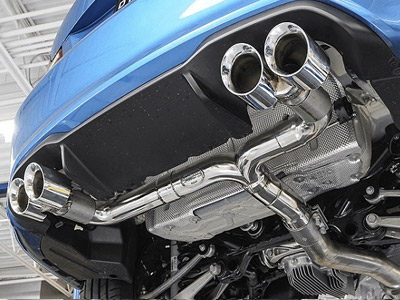
Exhaust System
Leaks, rattles, broken clamps or hangers are all potential exhaust system conditions. The entire system from engine manifold to tailpipe should be inspected. Leaking exhaust fumes can enter the passenger compartment. Even a small exhaust leak can affect engine performance and result in higher pollution emissions.
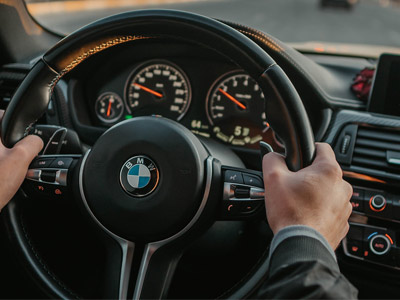
Steering System
Loose or binding steering indicates worn parts that can cause poor alignment and premature tire wear. Cracked or broken grease boots can cause premature part failure.

Shocks & Struts
Worn or badly leaking shocks and struts can cause braking problems and premature suspension wear. A cracked or broken mount will cause noise over bumps.
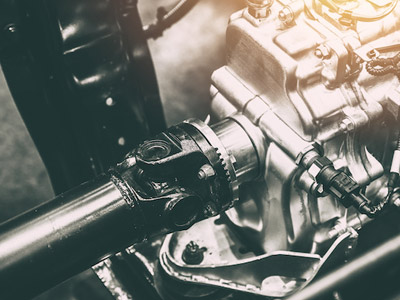
Driveline & Transmission
Un-lubricated, noisy CV joints or U-joints are likely to fail soon. A torn CV boot indicates probable CV joint damage. Cracked boots or missing clamps may be repairable. A broken driveline component will allow the engine to run, but the vehicle may not move.
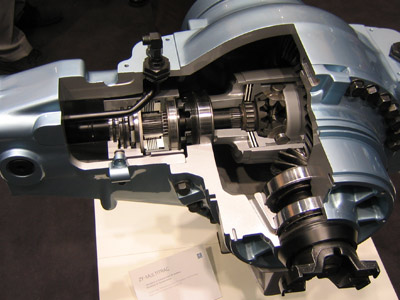
FR & R Differential/Transfer Case
Your differential or transfer case transfers the torque coming out of the transmission to the wheels. If there’s a problem, your vehicle could end up operating at reduced power.
Tires
As the only parts of your vehicle that actually make contact with the road, we take tires very seriously. A worn tire could cause longer braking distances, decreased fuel mileage and even alter your vehicle’s ride and handling. Not to mention leaving you stranded on the road. We’ll check their pressure, tread depth, wear, alignment and more to make sure your tires are safe, effective and efficient.
Brakes
Your differential or transfer case transfers the torque coming out of the transmission to the wheels. If there’s a problem, your vehicle could end up operating at reduced power.


